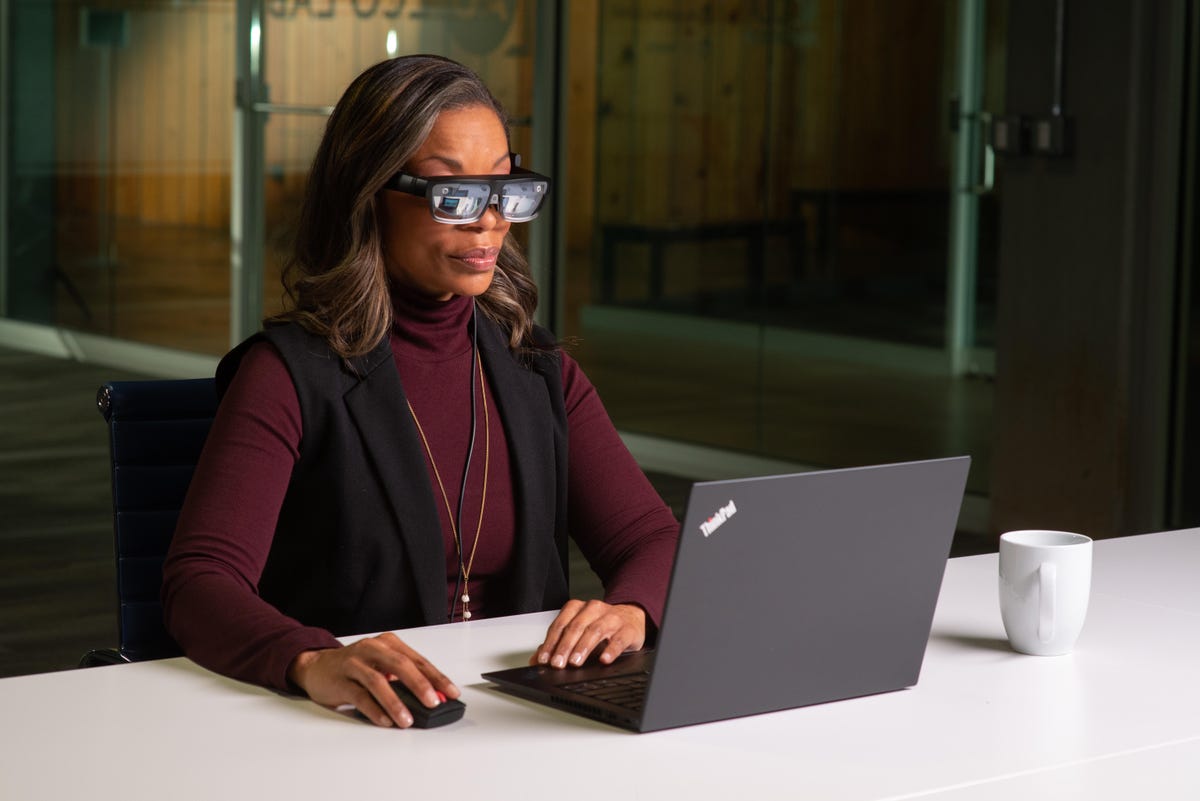Lenovo's New ThinkReality A3 Business Smart Glasses Look Almost Normal
Lenovo s new thinkreality a3 business smart glasses look under or over hair lenovo s new thinkreality a3 business smart glasses look good lenovo s new thinkreality a3 business smart glasses look through tiktok lenovo s new thinkreality a3 business smart glasses technology lenovo s new thinkreality a3 business plan lenovo new tablets lenovo new mobile phones lenovo system update

Lenovo's new ThinkReality A3 business smart glasses look almost normal
This story is part of CES, where CNET covers the latest news on the most incredible tech coming soon.
Smart glasses are slowly advancing, maybe becoming a mainstream consumer product that companies like Facebook and Apple will eventually try to sell us. In the meantime, designing commercial versions for business might still be the best landing spot for hardware makers. Lenovo's new ThinkReality A3 AR smart glasses, announced at this year's virtual CES and coming in mid-2021, is one of these pro-level devices. It looks like a more compact version of the headset Lenovo already has, but it's starting to look a lot less like a visor, and a lot more like everyday glasses.
The ThinkReality A3 glasses look a lot like the nReal glasses I tried a year ago, which tethered to a phone and had cameras and sensors over the top half of the glasses lens. The ThinkReality A3 will tether to PCs or phones using a USB-C cable (supporting Qualcomm Snapdragon 800 or better Motorola phones that can connect to DisplayPort, according to Lenovo).
The glasses run on Qualcomm's XR1 processor (which also powers a number of other lower-power smart glasses already, like the latest-gen Google Glass), and has two 1080p displays, one per eye, that could show heads-up displays or 3D/AR images. The glasses can also do room-scale tracking through its wide-angle dual cameras, and can record 1080p video with its 8MP camera.
The glasses could also work with custom-built industrial frames, according to Lenovo.

Still don't look like everyday glasses, though (but they're smaller than before).
LenovoWe haven't gotten a chance to demo the glasses, but they sound very much like they'll do what some other compact AR glasses, like the nReal Light, are able to accomplish. For PC tethering, the glasses will work as virtual monitors via Lenovo software optimized for Intel/AMD Ryzen PCs.
They're not necessarily as advanced as a HoloLens 2, but they could bridge the gap towards products that eventually get small enough and powerful enough to look glasses-like. These look a lot more like normal glasses than before, but they still won't look like you're not wearing tech on your head.
Source
